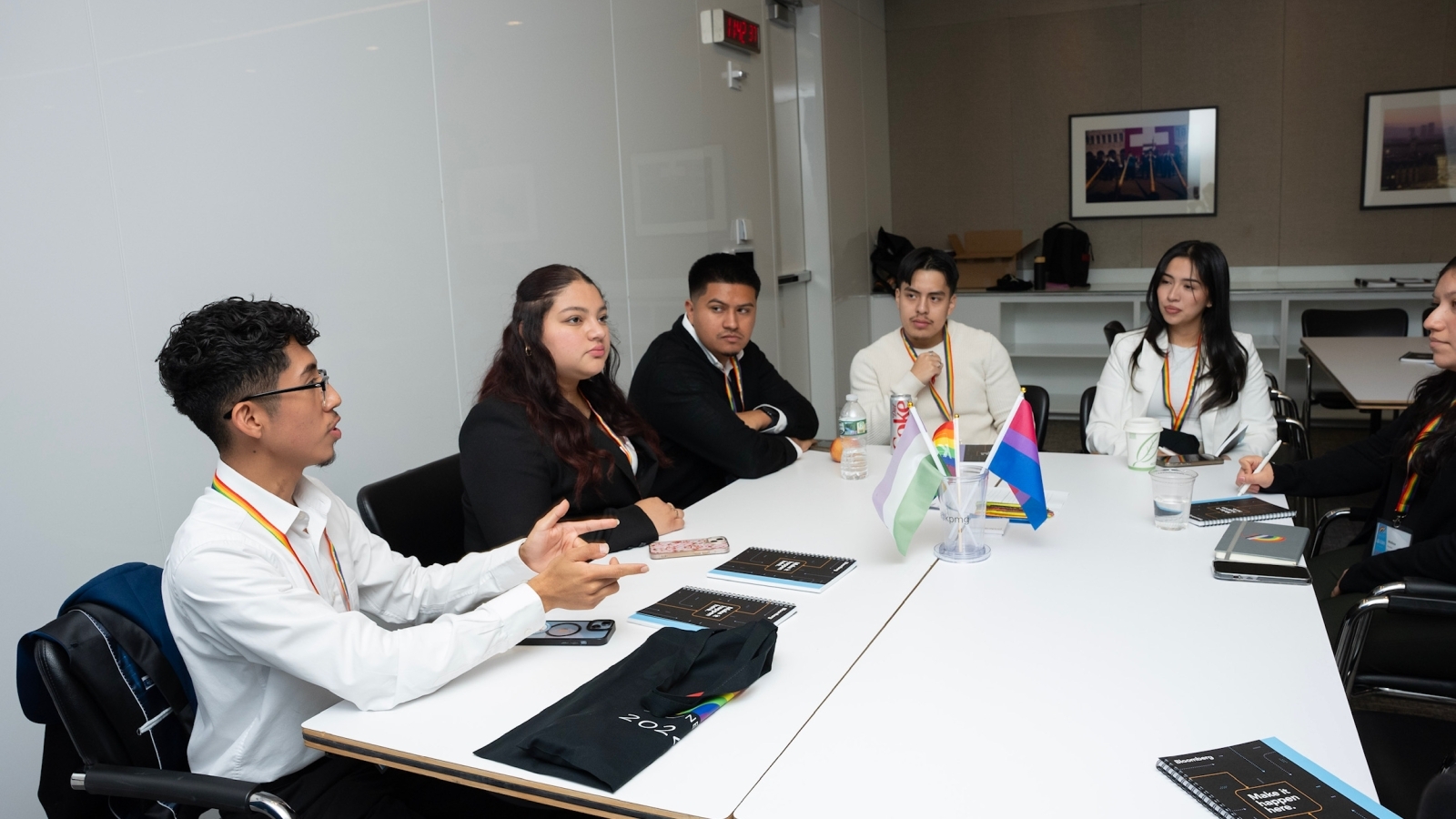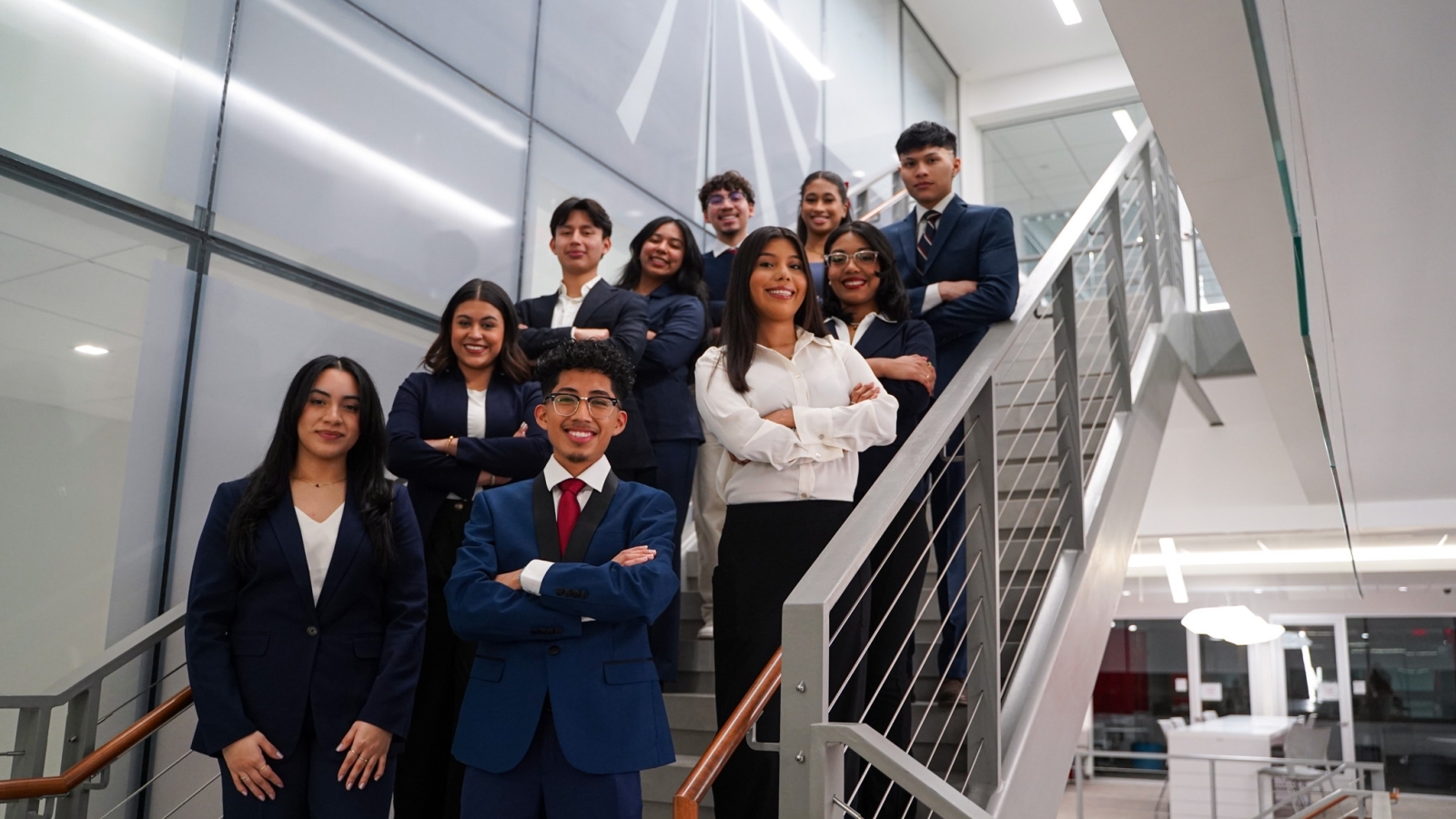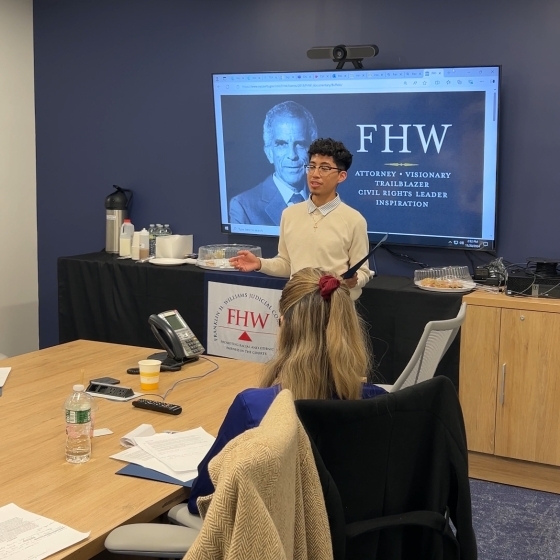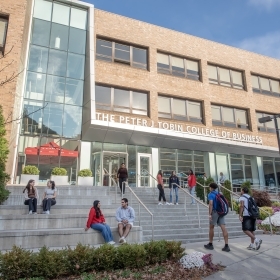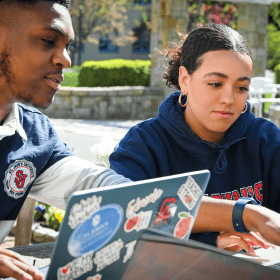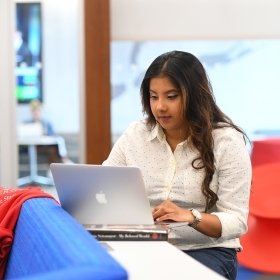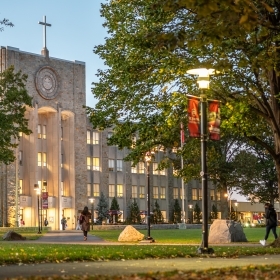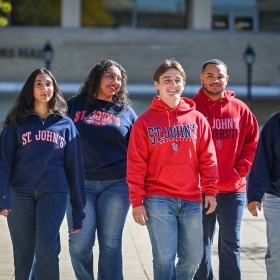First-Gen and Fearless: Miguel’s Journey at St. John’s University
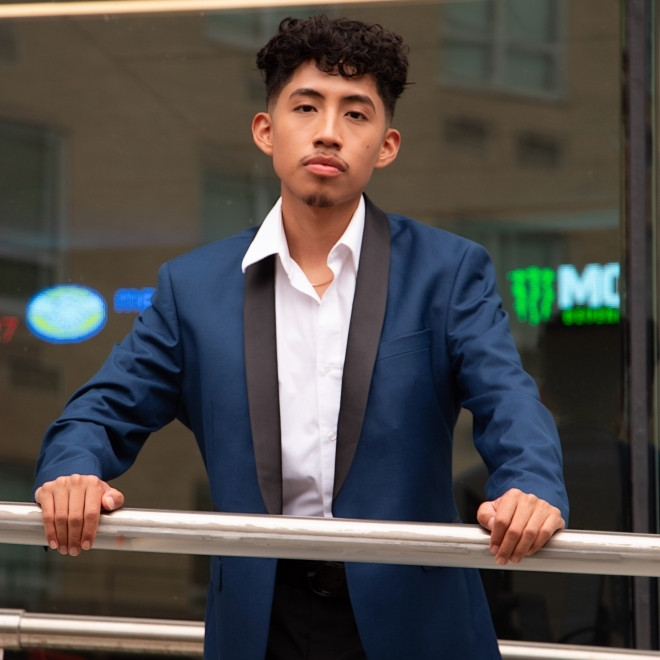
From Brooklyn, NY, to leadership success—how one first-generation student turned a challenge into a calling.
Starting college as a first-generation student can feel like stepping into the unknown. You might be figuring it all out alone—juggling work, classes, and questions about where you belong. That was Miguel A. Dominguez ’25CCPS just a few years ago.
Now? He’s a graduate of St. John’s University with a bachelor’s degree in legal studies, two minors, campus leadership roles, and a future shaped by purpose.
In this blog, you’ll follow Miguel’s inspiring path—from his first uncertain steps as a commuter student to finding his voice, building community, and becoming a campus leader determined to lift others along the way.
“My college journey has meant overcoming the hidden systemic barriers historically installed to limit low-income, first-generation students,” he said. “It has meant joining the 20.8% of Hispanic and Latino graduates with a bachelor’s degree. Graduating with a B.S. degree means my siblings and future children will check off the ‘bachelor’s degree or higher’ box on school documents. Completing this milestone proves to my ancestors and family that it is possible—sí se puede.”
Overcoming Obstacles in the First Year of College
The early days of college weren’t easy. Miguel had to balance two part-time jobs, a full course load, and a one-hour commute.
“I couldn’t afford not to work. I needed my two jobs to sustain myself financially,” he recalled. “But I also needed to perform well in my courses to maintain a high grade point average.”
Eventually, he swapped one part-time job for a campus work-study position, used his commutes to study, and reorganized his priorities to pursue two minors. The turning point in his journey came when he realized something was missing in his college experience: community.
“After my first year at St. John’s, I wasn’t involved in anything,” he said. “I didn’t have any friends or network.”
That changed when he joined student organizations at St. John’s University, such as the Latin American Student Organization (LASO); the Association of Latino Professionals for America (ALPFA); Student Government, Inc. (SGI); and the First-Gen Fellowship (FGF).
“From then on, I realized that I was surrounded by individuals who wanted to see me win and were cheering me on from the sidelines,” he said.
Organizations like FGF gave Miguel a space to voice his experiences unapologetically. “Program leaders Elvira Garcia and Ulises Garcia are living proof of what it means to give back to your community,” he said. “They inspired me to do the same.”
In addition, Miguel credits the fellowship with grounding him spiritually, emotionally, and academically. “FGF reminded me to put God and prayer at the center of my life amid my stressful academic and work schedule,” he reflected. “It reminded me to pause and breathe. Most importantly, it reminded me of my value and potential and helped me acknowledge how deserving I am of all the beautiful things life has to offer.”
Leading with Purpose
From then on, Miguel did more than participate in student life—he led with intention. As president of the ALPFA campus chapter, he credits the experience with developing his public speaking and leadership skills while amplifying Latinx representation in business.
“Leading an amazing nonprofit chapter that aims to increase Latin(e) representation in every sector of the global economy aligned with my values of diversity, equity, and inclusivity,” he explained. “Networking with corporate executives and chief executive officers (CEOs) from the same background encouraged me to continue reaching for high ranks. It made me realize there is a table for people like me. And if there’s not, we make one.”
Connecting Classroom Learning to Real-World Impact
Miguel also found deep meaning in the classroom. As part of his English minor, he enrolled in courses such as Critical Race and Ethnic Studies and Writing as Social Action, which resonated with his lived experience.
“These courses gave me a platform to voice the social disparities I witnessed impacting my Hispanic Mexican community and neighboring BIPOC (Black, Indigenous, and People of Color) communities,” he explained. “From the books, experiences, and activists I learned about in the classroom, I felt inclined to seek public interest legal roles during my gap year before law school.”
His global classroom experiences were equally impactful. During a short-term study abroad program in Paris, France, for a Legal Argument course, Miguel discovered a desire to work in international law.
“Although my time in France was short, I have felt inclined to explore more of the world and pursue job roles that will allow me to witness and live foreign experiences,” he said.
Miguel’s Advice for First-Generation College Students
After recently graduating, Miguel offered six candid pieces of advice for incoming first-generation college students:
- You have much more to offer the world than you think—don’t dim your light for someone else’s comfort.
- You deserve to be here. It wasn’t luck or a handout; it was earned. Take pride in that.
- Don’t be afraid to join organizations and put yourself out there! Staying in your comfort zone won’t open doors.
- Don’t compare yourself to your peers. Your circumstances are different, and this is your path.
- Build your network early by attending events both on and off campus.
- Start interning during your sophomore year to increase your chances of securing a full-time offer after graduation.
“You’re breaking generational curses,” he said. “You’re paving the path for your younger generation. You’re wearing the first-gen college label, so the generation after you won’t. Never feel ashamed to ask for help.”
Miguel urges students to ask for support, seek mentors, and avoid comparisons. “You do have what it takes,” he said. “You just weren’t born with the blueprint, but every step you take is laying it down for the next person.”
Looking Ahead
From navigating long commutes to connecting with CEOs, Miguel’s journey at St. John’s proves that where you begin doesn’t define where you’ll go. He didn’t just find his place—he created it.

